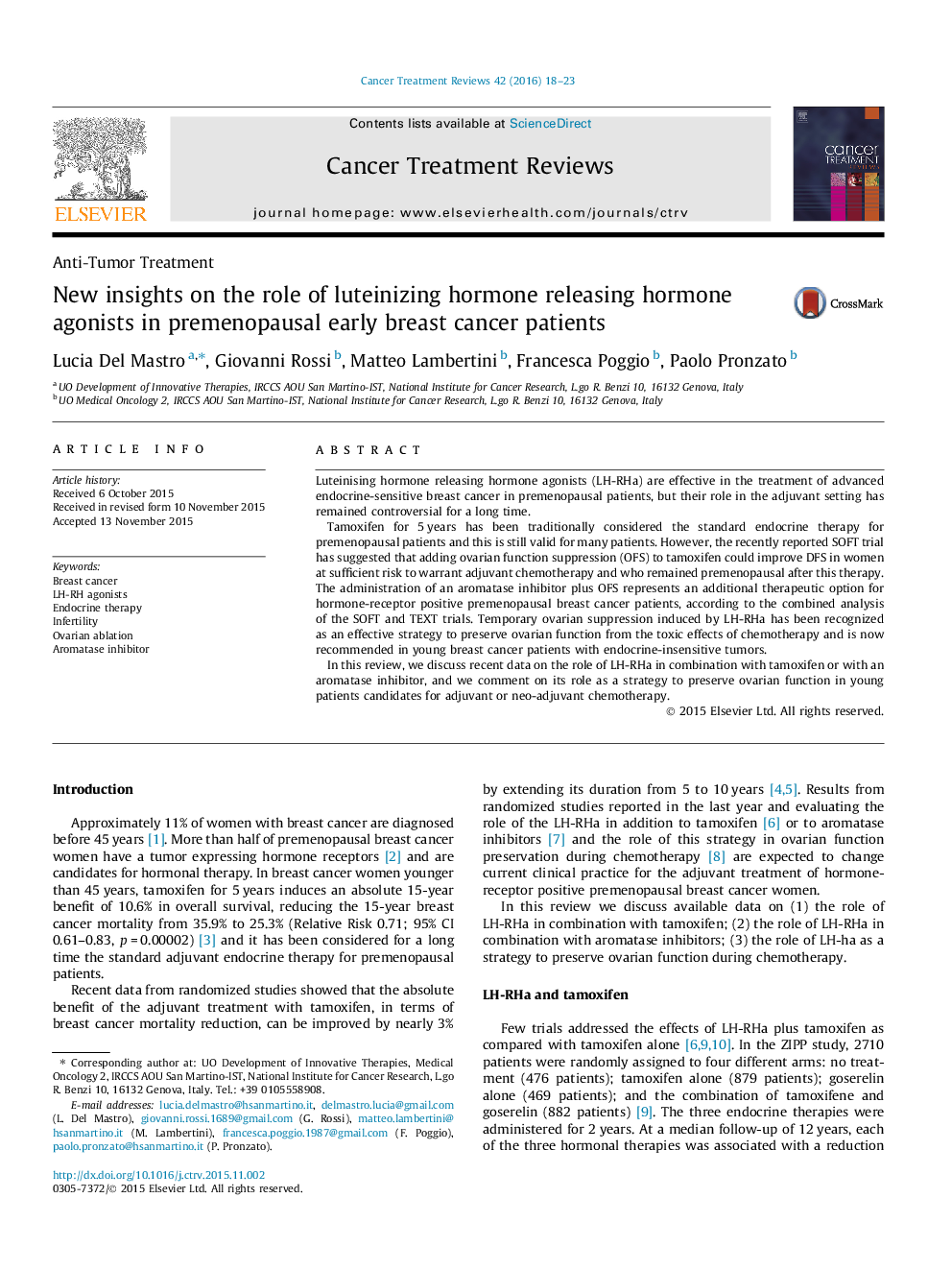| Article ID | Journal | Published Year | Pages | File Type |
|---|---|---|---|---|
| 6190378 | Cancer Treatment Reviews | 2016 | 6 Pages |
â¢Endocrine-sensitive young patients with operable breast cancer are suitable for hormonal therapy.â¢Tamoxifen alone is no longer the standard treatment in all patients, although it remains an appropriate treatment for many low-risk patients.â¢LH-RHa + tamoxifen or with an aromatase inhibitor are new treatment options.â¢LH-RHa-induced ovarian suppression reduces gonadotoxicity of chemotherapy.
Luteinising hormone releasing hormone agonists (LH-RHa) are effective in the treatment of advanced endocrine-sensitive breast cancer in premenopausal patients, but their role in the adjuvant setting has remained controversial for a long time.Tamoxifen for 5Â years has been traditionally considered the standard endocrine therapy for premenopausal patients and this is still valid for many patients. However, the recently reported SOFT trial has suggested that adding ovarian function suppression (OFS) to tamoxifen could improve DFS in women at sufficient risk to warrant adjuvant chemotherapy and who remained premenopausal after this therapy. The administration of an aromatase inhibitor plus OFS represents an additional therapeutic option for hormone-receptor positive premenopausal breast cancer patients, according to the combined analysis of the SOFT and TEXT trials. Temporary ovarian suppression induced by LH-RHa has been recognized as an effective strategy to preserve ovarian function from the toxic effects of chemotherapy and is now recommended in young breast cancer patients with endocrine-insensitive tumors.In this review, we discuss recent data on the role of LH-RHa in combination with tamoxifen or with an aromatase inhibitor, and we comment on its role as a strategy to preserve ovarian function in young patients candidates for adjuvant or neo-adjuvant chemotherapy.
